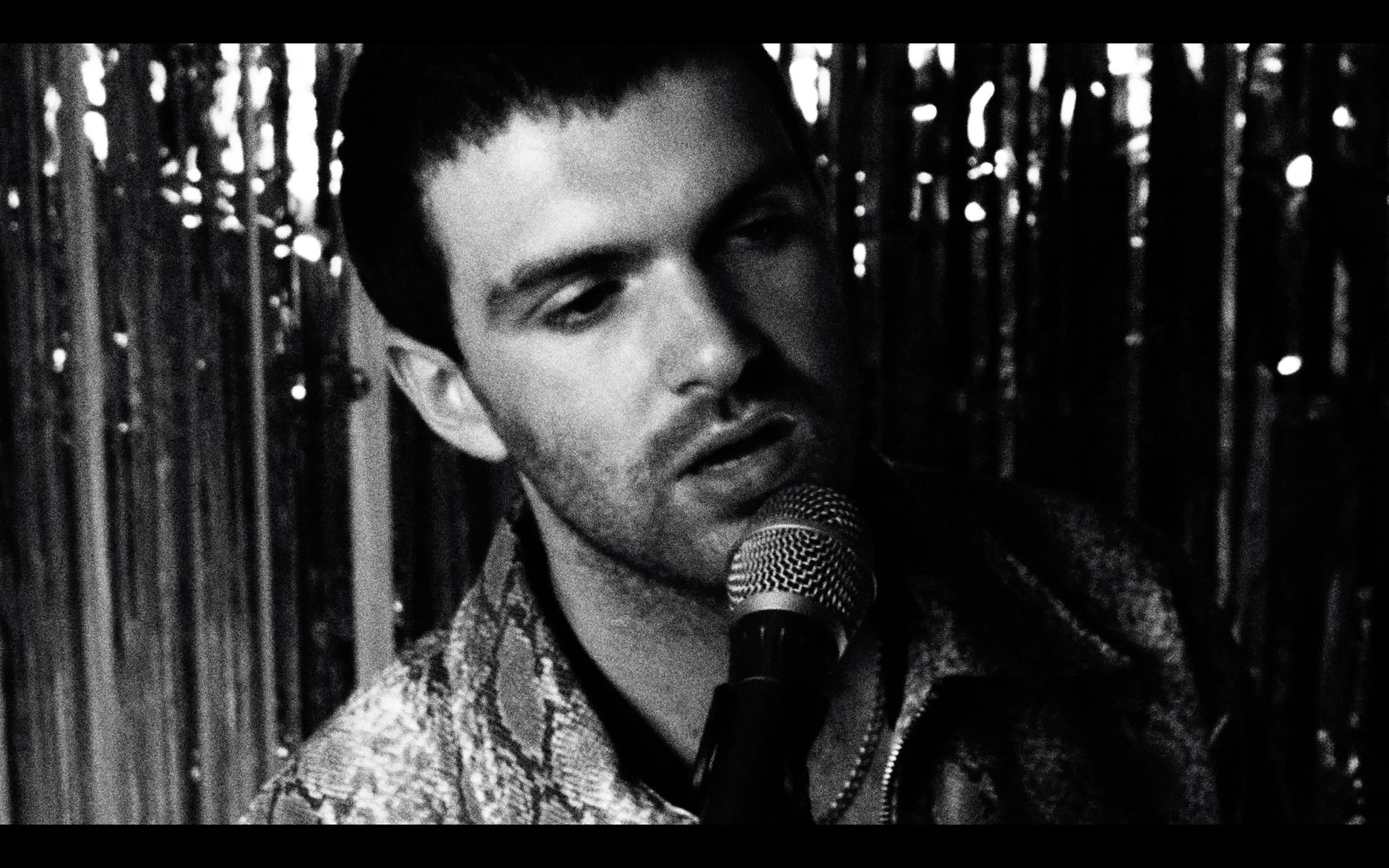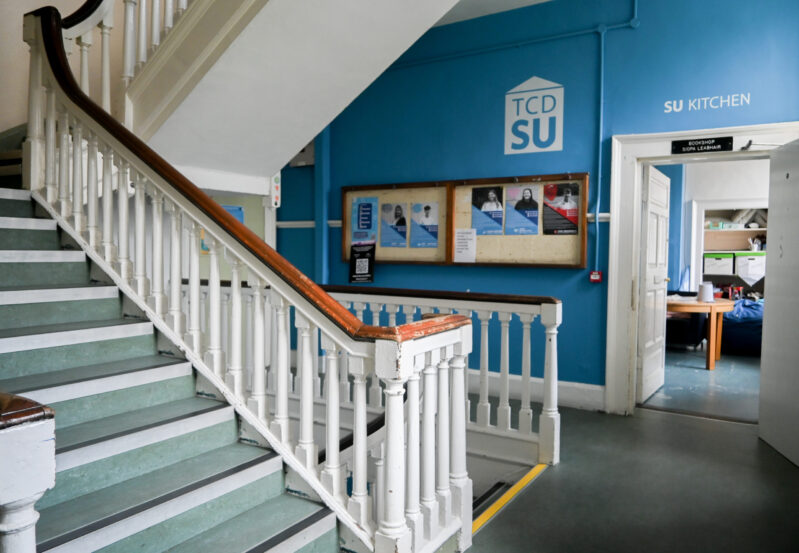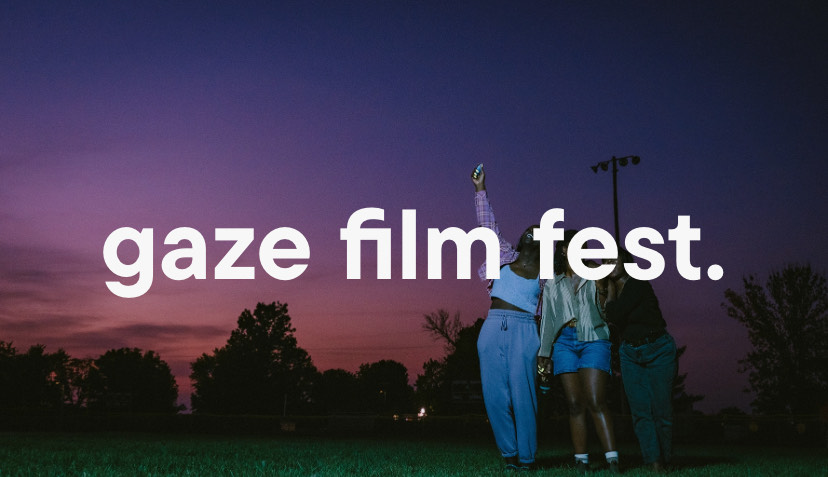“There’s a whole thing about the creative space not being yours … they’re just there and someone seizes them and does it, so you always have to have your antenna up … It lets you get out of your own head and not be so precious about it – there’s a million ways of looking at it.”
Music and its collaborators make themselves known in your life at some point, usually at an early age, and are often formed from the presence of others. In my conversation with twenty nine year old Conor Thornton, (in a Costa, which is not particularly in a journalistic aesthetic sense on my part just more for convenience), the introduction to music wasn’t a certain recollection for him, just the way it had always really been. No key moment flickering in his mind or a certain figure carrying armfuls of CDs and raving about different artists as they are mentioned or heard on the radio. It was more of just growing with the vibrations of music in his surroundings from the soft beginning.
Branching from Harolds Cross to Rathmines while growing up, Conor himself went to Trinity landing in the well known BESS course after switching from English Studies in the middle of his first year. It was during his time in Trinity that he formed a band, ‘Voxx’, where music itself became more of an active interest of his over just enjoying the background noise of his younger years. Strange mix? Or was I passively being stereotypical? Regardless, this interview isn’t about me.
When I brought up that aspect of having two separate aspects of his life, and therefore choosing the latter, I asked if his parents or close family had any kind of opinion on it. A common theme for young artists is the head-cocking, concerned questioning from family and friends (and strangers looking to Jack Torrence in torment) about how you’ll make any money, how you’ll live, how you’ll be in a few years time when it doesn’t work out and you have nothing left to give. In theory. Conor, however, never felt the sense of pressure to be some kind of “corporate person”, as he says, and be a part of the idea that you work to work higher up to work higher up – to retire with maybe some kind of pension. His parents were very open to another way of life other than a business degree’s ideas of one, and from that there was always a sense of emotional support and stability that everyone needs behind them.
While there was the parental support and having the perk of already living in Dublin during the accommodation crisis, which is the exact term you should be using for this situation, Conor’s ground was still unsteady in the music scene. It is always fluttering under and above Dublin city, and growing from this over the past few years has been one of restarting, relearning and accepting the idea of your music, your career and your inspiration. One topic we discussed was the lack of support for the arts across the country, while they are such a value to the country’s population, a value we saw extremely increase during the coronavirus pandemic and lockdowns.
We often see sports and academia, especially within educational environments, applauded and funded as the programmes should be. But the arts fall shorter and shorter in appreciation and lack facilities to continue to inspire those coming. In relation to this, Conor spoke about the Art Council grant and how while beneficial it was to be given and use to move further in his career in music, this is the kind of thing that doesn’t happen very often for large majorities. “[It’s] the kind of thing that needs a grant to give a grant.”
Another financial support for artists, the Basic Income for the Arts (BIA), is pivotal to artists travelling or working on projects. Conor says: “it builds your self esteem …it legitimises what you do.” It provides a huge sense of relief and eliminates the pressure of having to get another job. Being an artist is a job on its own, regardless of what people who sit in an office all day typing may say, so to have to add another profession to your life on top of this career is overloading and quite frankly ridiculous to have to consider in order to have somewhat of a fundable approach to your passion.
This is something that creates what, I can assume, many of us who are working can relate to – the fear of working and purely working will take over, and that there will be no time for what you truly wish to do with your career. As we both spoke about this, it was noted by us both how, either when starting out or pursuing your career heights, you have to constantly produce and create new work and pour over new projects to keep up with the satisfactory algorithm and keep being somewhat relevant in your own space. There isn’t a time period for you to sit back from a piece and detach from it before coming back to edit, as Conor put it, not like a bestselling author or award winning artist. This, paired with Conor’s self described “meticulousness” in his own projects and creativity, brought a much heavier sense of reality into Conor’s background and current upcoming project and shed light into one particular philosophy he draws on from it being a constant in his work ethic.
Shane MacGowan, known well for his time as frontman in the band ‘The Pogues’ (who funnily enough have a vastly popular Christmas song while MacGowan himself was born on Christmas Day in 1957), has spoken on the idea of inspiration and idea being in an “infinite well”, and Conor draws on this in his own mind when working on his music. The idea of having your “antenna up” and to truly seek what you want to turn your idea into serves as motivation at times to Conor, but also at times the feeling of “screaming into a void.” I cannot blame him for that emotion, I truly believe we all can find ourselves in those depths when on our own paths and in our own careers, whatever they may be.
There is a collective worry around creating and producing your own work. It can feel so delicate and raw, seeping through the fingers, pooling in the palms when you hold the idea. Yet, with all other factors we discussed, like finding time outside of working another job, or the fear of being left behind in producing, MacGowan’s ideology of a pit of inspiration always up for grabs seemed a somewhat worrying motivation for Conor to keep pushing forward. With this, in an attempt to push himself further, was the creation of his upcoming single ‘Coordinates’. “[It] can only be bad when you think too much about your creativity.”
During his time in Pulse College, he studied a course for scoring Film, TV and Video Games – a new approach to music in his career path. He created ‘Coordinates’ after being tasked with a brief for one of his assessments, with the task being to compose a thirty-second composition for an image chosen by the student from a selection given to them. The image Conor landed on was one of a “type of jazz club, party or a cyberzone feel”, and after working on the composition, he found himself to be inspired by something that was “not as attached to what [he] previously released”.
With more of a bare, minimalistic production aspect and having the chance to start it with less emotion attached as it was simply a college project, not a personal one, Conor recalled listening to it post-production and feeling as though he had created it like: “I can see the shapes of it but can’t make it out.” The music video filmed for it was done on a type of older ‘crank’ camera, almost like an old movie, which he said wasn’t the inspiration for it, but did fit nicely alongside it. It seemed like as the small composition was produced, more and more fell into place for what represents the projects Conor is currently envisioning, with ‘Coordinates’ being the first part of this to come out into the world. Releasing on September 15th 2023, and more in his vaulted well, Conor Thorton is reintroducing his music into the limelight of Dublin once more.







